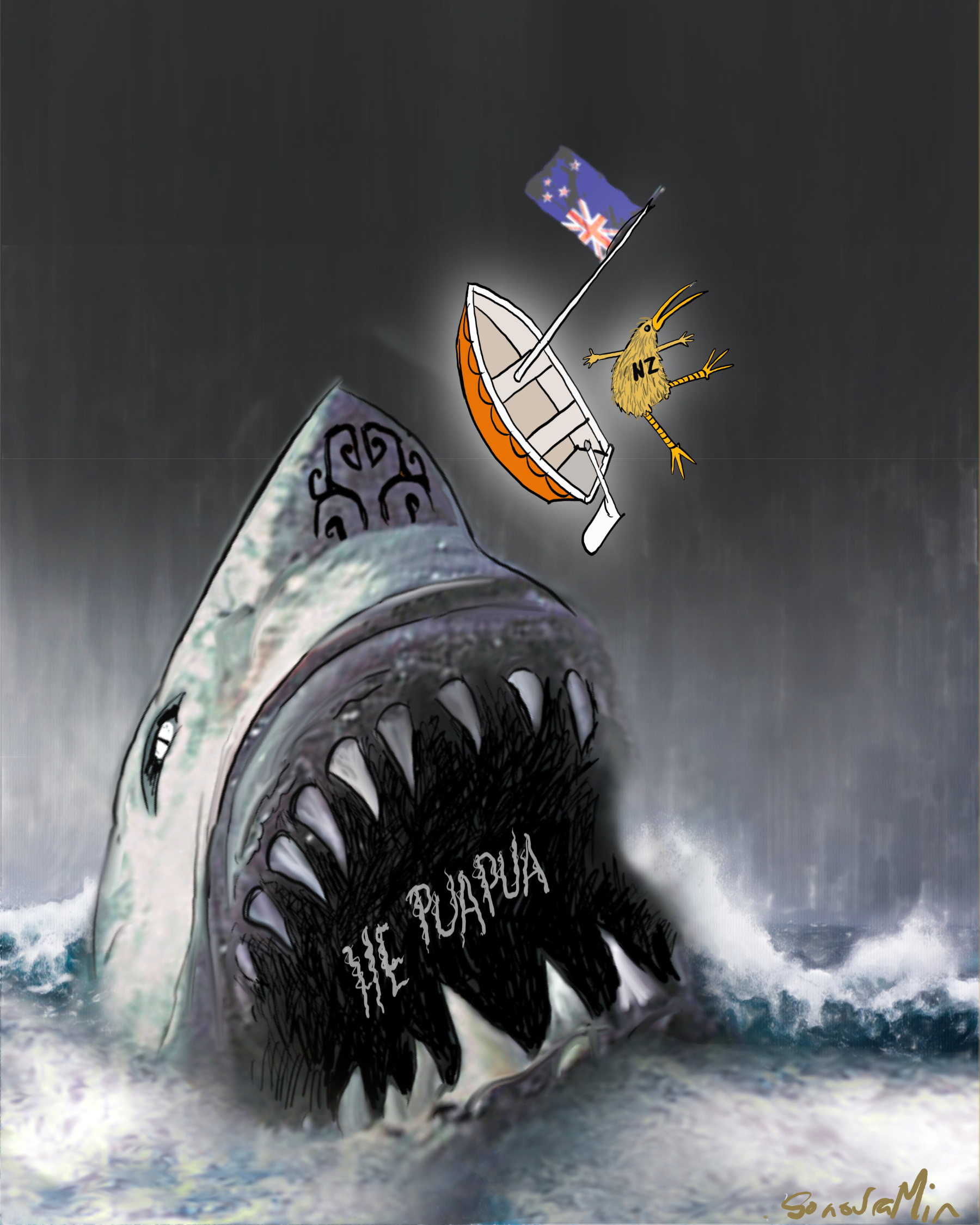I’m grateful to my former North Shore MP, Hon Wayne Mapp, whose electorate chairman I was for most of his time in Parliament, for reminding me that the remit I suggested in last week’s column here at The BFD was over-complicated by trying to cover too many points at once. As a former law lecturer, Cabinet Minister and member of the Law Commission, Wayne has a very good handle on these things, and I concede that he is right.
Consequently I will amend my remit to get more to the point:
That, in its manifesto for the next General Election, the National Party (i) pledges to reverse any decisions made to implement any part of the He Puapua Report; and (ii) will reverse any amendments to the history curriculum taught in New Zealand schools that distort what actually happened.
Separately, I will agitate for the party to review whether it was appropriate for the Court of Appeal in 1987 to declare that “the Treaty established a partnership, and imposes on the partners the duty to act reasonably and in good faith,” thus leading the fourth Labour Government under David Lange to embed this into some of our laws as one of the “principles of the Treaty.”
In presenting the other day what he termed his “Wellbeing Budget”, Finance Minister Grant Robertson described it as reversing the 1991 Budget of then National Finance Minister Ruth Richardson, that became known as the “Mother of All Budgets”, thus highlighting the acceptability of such policy reversals.
So how about we term the He Puapua report, with its separatist advocacy of 50/50 co-governance with Maori, the “Mother of All Disunions”, and make it abundantly clear that the next National Government will move immediately to restore unity in our country’s governance, in accordance with the wishes and objectives of the framers of and signatories to the Treaty of Waitangi.
Remember that, at the signing in Waitangi on 6 February 1840, as Hone Heke signed Te Tiriti o Waitangi, Governor Hobson – trying to say, ‘we are now one people’ – said to him, ‘He iwi tahi tatou.’ Heke corrected his grammar: ‘He iwi kotahi tatou,’ he said. To me, both words in te reo, tahi and kotahi, mean the same thing: oneness, unity. They do not even suggest “partner” or “partnership”; indeed neither of those words of their Maori translations are contained in either the preambles or the texts of the three Treaty articles in either language. Which is justification for immediate and outright rejection of the separateness advocated in He Puapua – no ifs, no buts, no maybes
Anyone interested to learn more on this issue is advised to read these two articles that have appeared in the past couple of days on The BFD:
- Tikanga in law what does it mean? in which Dr John Robinson discusses the implications of trying to incorporate tikanga into our laws as advocated in He Puapua, and reminds us of what the prominent Maori scholar of his time, Sir Apirana Ngata, said in an important speech in 1922:
“The Maori did not have any government when the European first came to these islands. There was no unified chiefly authority over man or land, or any one person to decide life or death, one who could be designated a king, a leader, or some other designation. … The Maori did not have authority or a government which could make laws to govern the whole of the Maori race.”
The second article is by prominent commentator and political analyst, Chris Trotter:
It is better that I cover the matter of the Treaty in a separate remit, that I have yet to devise. My current thinking is that the most effective long-term solution may be a Royal Commission charged with reviewing how best to relate the aims of the 1840 documents to this second decade of the 21st century, 182 years later, with all of the changes and developments that have occurred over that long time.
Currently, we are lumbered with what are termed “the principles of the Treaty of Waitangi”, the origin of which can be found here.
My personal objection is that however laudable the intention, it is not for the courts, even the Court of Appeal, to make our laws – that is the prerogative of our sovereign Parliament. The role of the courts is to interpret and reinforce whatever laws Parliament sees fit to enact from time to time.
I think Lord Cooke went too far when he said:
The Treaty established a partnership, and imposes on the partners the duty to act reasonably and in good faith.
especially in view of the fact that the framers and signatories deliberately avoided any suggestion of partnership, and emphasised unity.
My personal view remains that New Zealand is a bi-cultural (Maori and non-Maori) state with a multi-cultural society, and that if we are to continue to accept the Treaty as our “founding document”, it needs to be updated to reflect the huge range of changes that have occurred in our march to the modernity of the 21st century. I can think of no more effective way to achieve this than by a Royal Commission, open to all shades of opinion. I’ll look forward to your comments, readers, to see what you think.
Tailpiece:
They say that pigs can’t fly, but something flapped past my window last Sunday morning when I read in the Sunday Star Times a piece by Andrea Vance in which she described the present Labour Government as “an artfully-crafted mirage.”
Wow! In a Stuff medium? Have the Stuffers finally seen the light? Does this mean that Stuff is now open to all shades of opinion on all topics and will revise its ruling that sceptics like me who reject the unproven notion of a “climate emergency” will no longer be branded by Stuff as “climate deniers” and that our attempts to demonstrate that history and observation have shown that temperature variations are natural, minor and capable of adaptation may make an appearance in their columns?
Will it turn out that the flapping I heard was not a flying pig, but the single swallow that makes a summer?

Please share this BFD article so others can discover The BFD.

